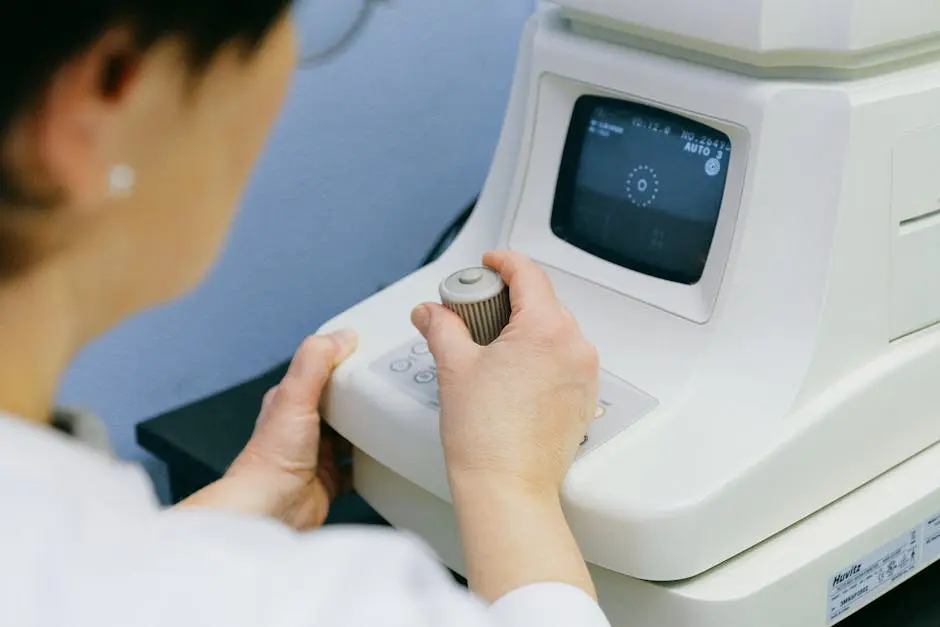
Taking care of your eyes might seem straightforward, yet understanding what goes on at an eye clinic can help you feel more at ease. In this blog, we’ll explore the ins and outs of an eye clinic visit, highlighting key aspects like exams, tests, and the professionals you’ll meet.
The Importance of Regular Eye Exams
Regular eye exams are essential for maintaining good eye health and catching potential issues early. They not only assess your vision but also gauge the overall health of your eyes, ensuring you catch any problems before they escalate.
Did you know that regular eye exams can detect more than just vision problems? They are also critical for identifying serious health conditions like diabetes, high blood pressure, and even certain cancers. The eye is a window to the rest of the body, and eye care professionals are trained to see signs that might not be immediately obvious. Establishing a routine eye exam schedule can therefore not only preserve your eyesight but could also be a lifesaver.
What to Expect During Your Eye Exam
When you arrive at the eye clinic, you can expect a series of tests. These might include vision acuity tests, a discussion of your health history, and checks for common conditions like glaucoma or cataracts. Each step is designed to paint a clear picture of your eye health.
Beyond the basic tests, your doctor may perform a retinal examination where they use sophisticated equipment to see the back of your eye. This might sound sophisticated but is generally a straightforward process that provides important insights into the condition of your retina and optic nerve, both critical for your sight. During this exam, it’s not uncommon to have your pupils dilated to allow a better view of the inner eye. This can temporarily blur your vision, but it’s a standard procedure that aids in thorough assessment.
The importance of discussing your medical history cannot be understated. A comprehensive overview of your health helps the optometrist in creating a customized eye care plan. Accurate information allows the professional to consider underlying issues that might be affecting your vision or eye health and to recommend appropriate solutions.
Meeting the Professionals: Optometrists and Ophthalmologists
At the clinic, you might encounter both optometrists and ophthalmologists. Understanding their roles can help you feel more comfortable; optometrists focus on vision care, while ophthalmologists handle more complex medical and surgical eye issues.
Optometrists are your go-to for regular eye checkups. They perform eye tests, prescribe lenses, and diagnose common eye issues. Ophthalmologists, on the other hand, are eye surgeons who can provide treatment for severe conditions like retinal detachments, as well as managing laser eye surgeries and other intricate procedures. Knowing who does what may help you understand your doctor’s recommendations and know when it is time to be referred to a specialist for further care.
Specialized Tests and Advanced Technologies
Modern eye clinics are equipped with advanced technology to perform specialized tests. These tests provide detailed insights into your eye health, helping to pinpoint issues that may not be evident during a routine exam.
For instance, Optical Coherence Tomography (OCT) is a non-invasive imaging test that captures cross-section images of your retina. It allows doctors to detect eye diseases like macular degeneration by looking at the retina layers with incredible detail. Such tools have revolutionized the approach to early detection and management of complex eye conditions, significantly improving treatment outcomes for patients.
How to Prepare for Your Eye Clinic Visit
Preparation can ease any anxiety about your visit. Bringing a list of medications and any questions you have can facilitate a more productive appointment. Be ready to discuss your medical history and any symptoms you’ve experienced.
Arriving a little early helps ensure there’s enough time to fill out any necessary paperwork without feeling rushed. Consider jotting down any questions or symptoms beforehand so you don’t forget to discuss them. Also, bring your glasses or contacts, and a pair of sunglasses can be handy if you expect to have your pupils dilated.
A Clear Vision for Your Eye Health
Visiting an eye clinic may seem daunting, but with this understanding of the process and what to expect, you can approach your appointment with confidence. Remember, regular check-ups are crucial for maintaining your eye health, and professionals at the clinic are there to help.

